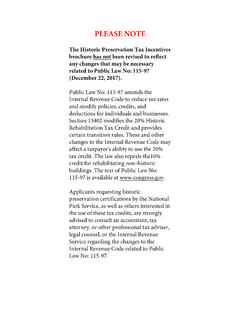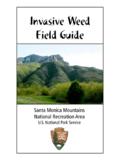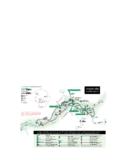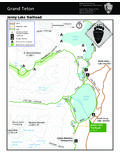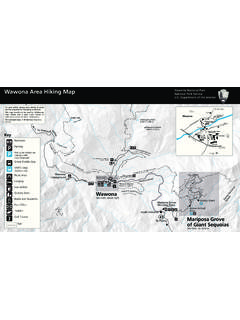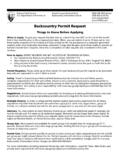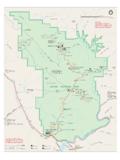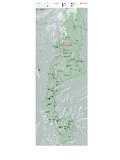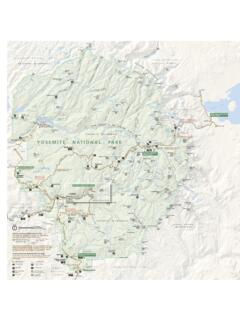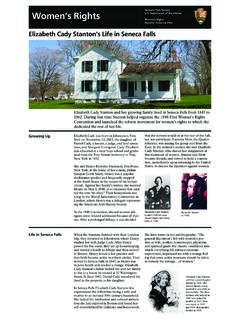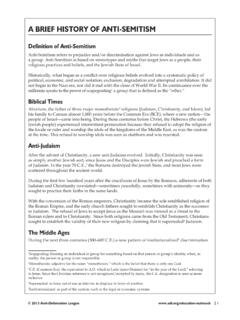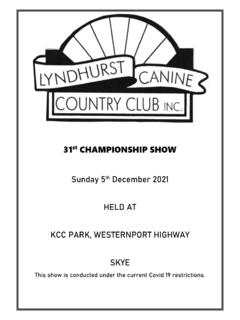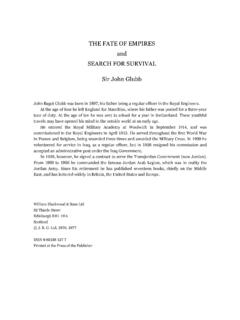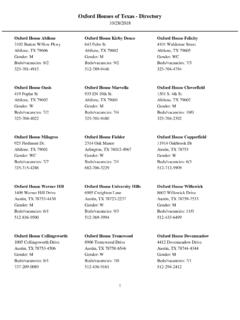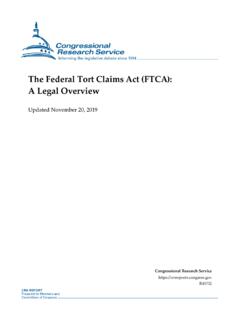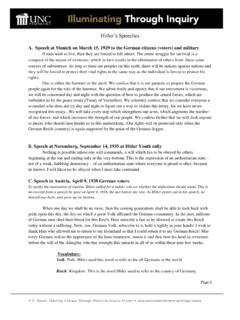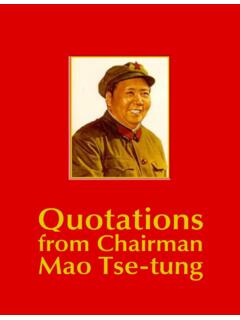Transcription of Timeline of the American Revolution - National Park Service
1 Timeline of the American Revolution 1763 - 1783 Key Events in Bolded Italic Prelude Early Americans had made the risky Atlantic crossing seeking a better life, adventure, religious freedom and political autonomy. They built a society in the New World and for generations ran it with little outside meddling. After the French and Indian War, Britain initiated policies aimed at bringing the colonists under closer control. Tensions grew. Many Americans stood firm in their belief that the King had suspended their natural rights. Increasingly, resistance leaders banded together. The stage for the Revolution was set. February 10, 1763 The Treaty of Paris ends Seven Year s War (French and Indian War). Left in debt from war, Great Britain looks to colonies for revenue.
2 October 7, 1763 Proclamation of 1763 bars settlement west of the Appalachian Mountains. April 5, 1764 Sugar Act imposes stricter trade regulation and duties on sugar and molasses. March 22, 1765 Stamp Act places tax on printed matter and legal documents. June 29, 1767 Townshend Revenue Acts create new import duties for the colonists. October 1768 British soldiers arrive in Boston to enforce compliance with new regulations. March 5, 1770 Boston Massacre. King's troops kill five civilians before British back off and troops leave Boston.
3 All Townshend duties removed except for tax on tea. December 16, 1773 Chests of tea destroyed in protest at Boston Tea Party. March-June 1774 Coercive Acts close port of Boston, bring Massachusetts s government under crown control, and allow for quartering of British troops on private property. September-October 1774 First Continental Congress meets in Philadelphia and approves collective strategy to deal with Coercive Acts.
4 Declare common grievances and adopt comprehensive boycotts of British goods. October 1774 Minute Man companies formed. 1775 Rage Militare On the eve of the Revolution the patriots succeeded in organizing a home defense; militias stood mobilized and ready. Fighting broke out at Lexington and Concord, Massachusetts, on April 19. At the Battle of Bunker Hill in June, the patriots lost, but learned that they could stand against British regulars.
5 Soon after, George Washington assumed command of the newly created Continental Army. April 19 Battles of Lexington and Concord, Massachusetts, occur. A rallying militia drives British back in retreat to Boston. May 10 Second Continental Congress convenes in Philadelphia, Pennsylvania. Fort Ticonderoga, New York, captured by Ethan Allen and Benedict Arnold. June 14 Congress establishes Continental Army. June 15 Congress appoints George Washington as commander-in-chief.
6 June 17 At the Battle of Bunker Hill (Breed s Hill), Massachusetts, the British seize their objective, but suffer severe casualties. July 3 George Washington assumes command of the Continental Army in Massachusetts. July 5 Continental Congress adopts Olive Branch Petition in effort to reconcile differences with Britain. August 28 Hoping to gain a fourteenth colony to aid in fight against Britain, patriots begin a campaign to capture Quebec, Canada.
7 October 13 Congress authorizes Continental Navy. November Lord Dunmore, Royal Governor of Virginia, offers freedom to slaves who join Crown forces. King George III rejects Olive Branch Petition. November 10 Congress establishes Continental Marines. November 14 General Richard Montgomery s forces occupy Montreal.
8 December 9 Patriots defeat British at Great Bridge, Virginia. December 30 George Washington orders recruiting officers to allow free blacks to join the Continental Army. 1776 Independence? While pens declared political independence on paper, the cause was nearly lost on the battlefield. Thomas Paine's Common Sense won many over to the cause. Congress took the dramatic step of declaring independence from Britain in July. After being pushed to the brink, the Continental Army's daring Delaware River crossing and victory over the Hessians at Trenton gave new life to the cause. January 1 British thwart Montgomery and Arnold's assault on Quebec; invasion of Canada fails.
9 January 5 New Hampshire becomes the first colony to declare full independence. January 19 Thomas Paine publishes Common Sense. February 27 Patriots defeat a loyalist force at Battle of Moores Creek Bridge near Wilmington, North Carolina. March 2 Americans fortify Dorchester Heights, Massachusetts, using cannon brought from Fort Ticonderoga by artillery chief, Henry Knox. March Congress appoints Silas Deane as diplomatic agent to France, in hopes of securing military aid.
10 March 3 - 4 Continental Navy and Marine raid on the British colony of Nassau, Bahamas, yields quantities of valuable military stores. March 17 American siege forces British to evacuate Boston. March 31 Abigail Adams issues historic plea for women s rights, urging her husband, John to remember the ladies as Congress drafts new laws. April Continental Army leaves its first winter encampment at Cambridge, Massachusetts.
